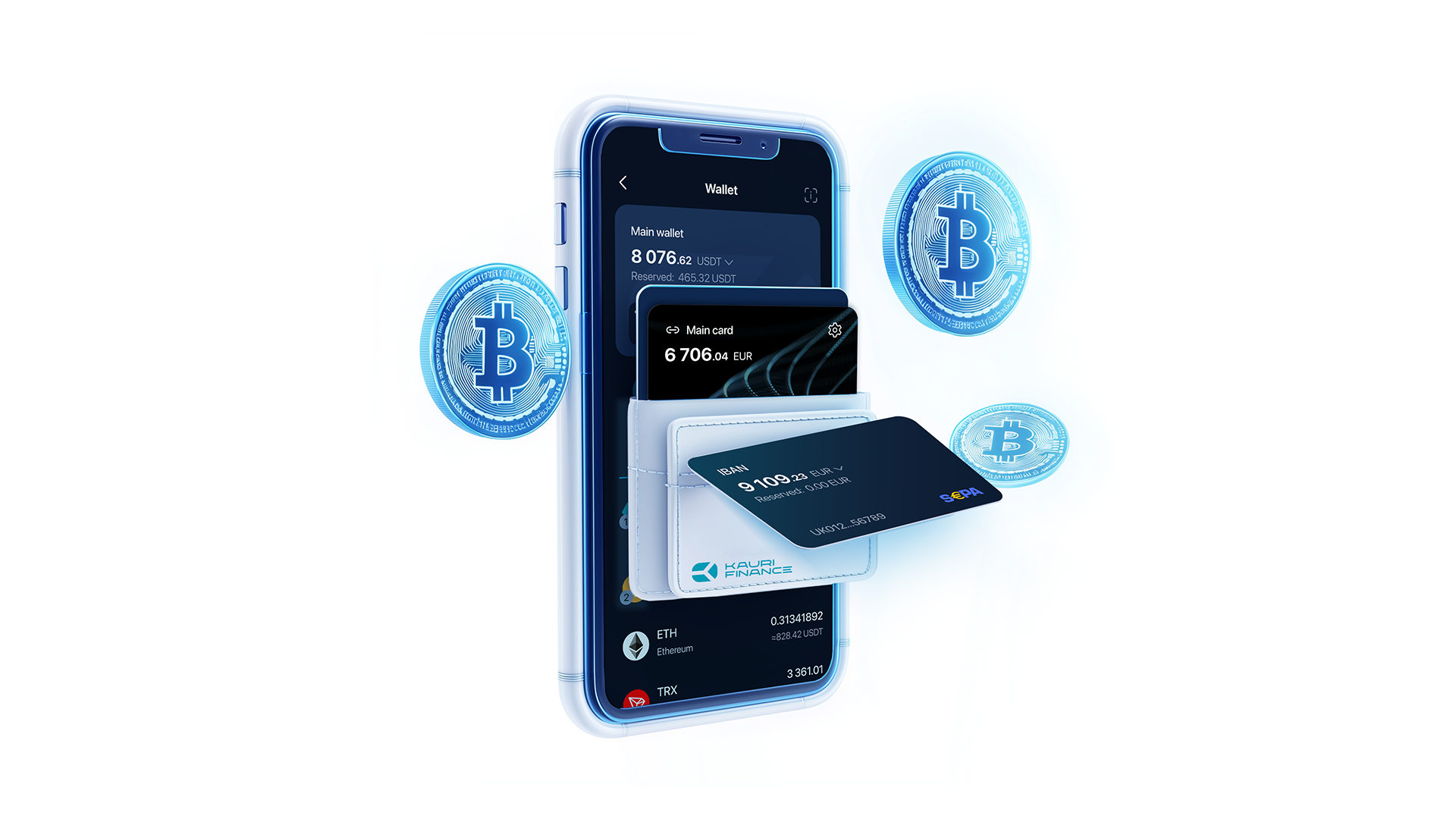
Types of Crypto Wallets: A Comprehensive Overview
- Types of Crypto Wallets
- What is a Crypto Wallet?
- The Importance of Choosing the Right Crypto Wallet
- Types of Crypto Wallets: An Overview
- Hot Wallets
- Software Wallets
- Mobile Wallets
- Web Wallets
- Cold Wallets
- Hardware Wallets
- Paper Wallets
- Custodial vs Non-Custodial Wallets
- Multi-Signature Wallets
- How to Choose the Right Crypto Wallet
- Conclusion

Types of Crypto Wallets
Cryptocurrency has taken the world by storm, with more people investing in digital assets like Bitcoin, Ethereum, and countless altcoins. But as much as the focus is on investing and trading, one essential part of managing crypto is keeping it safe. That's where crypto wallets come into play. A crypto wallet is a must-have for anyone entering the world of digital currencies, as it allows you to securely store, send, and receive your coins. But with so many wallet types available, which one is right for you? Let's explore the different types of crypto wallets and their features.
What is a Crypto Wallet?
Before diving into the various types, it’s essential to understand what a crypto wallet is. Contrary to what the name might suggest, crypto wallets don’t actually store physical coins. Instead, they store the private and public keys that allow you to access your cryptocurrency on the blockchain. These wallets serve as the gateway to your digital assets, enabling you to interact with the decentralized world of cryptocurrency.
When you own cryptocurrency, what you truly own is a private key—a secure code that grants you access to your assets. This private key must be kept safe because anyone with access to it can control your crypto. Crypto wallets come into play by securing these private keys, while the public keys associated with your wallet allow others to send you cryptocurrency.
The Importance of Choosing the Right Crypto Wallet
Choosing the right crypto wallet isn’t just a matter of convenience—it’s a matter of security. With the rise of cyber threats and hacking attempts, it’s crucial to select a wallet that keeps your assets safe while offering the functionality you need. Whether you’re a casual trader or a serious investor, the type of wallet you choose will impact how easily you can access your assets and how securely they are stored.
Types of Crypto Wallets: An Overview
Crypto wallets can broadly be categorized into two main types: hot wallets and cold wallets. Hot wallets are connected to the internet, offering ease of use for frequent transactions but potentially posing higher security risks. Cold wallets, on the other hand, are offline, making them more secure but slightly less convenient for day-to-day transactions.
Hot Wallets
Hot wallets are online wallets that allow users to access their crypto quickly. These wallets are best for those who need frequent access to their digital assets, such as traders or people who make regular transactions. However, because they are connected to the internet, hot wallets are more vulnerable to hacking attempts.
Software Wallets
Software wallets are a type of hot wallet you install on your computer or mobile device. These wallets are known for being user-friendly and provide a high degree of control over your private keys. Popular software wallets include Exodus and Electrum, both of which allow users to manage multiple cryptocurrencies and come with added security features like encryption.
Mobile Wallets
For those who prefer handling their crypto on the go, mobile wallets are a convenient choice. They are specifically designed to work on smartphones and are perfect for people who need access to their crypto while traveling or making quick transactions. Examples include Trust Wallet and Mycelium. Although mobile wallets are incredibly convenient, they are also more prone to security threats such as malware or device theft.
Web Wallets
Web wallets are accessed through a web browser and are often hosted by third-party service providers. These wallets, such as MetaMask and Coinbase Wallet, offer high convenience since you can log in from any device with internet access. However, they come with risks, particularly if you trust your private keys to a third party. Security depends largely on the provider, making it important to choose a reputable service.
Cold Wallets
Cold wallets, as the name suggests, are offline wallets. They provide a greater level of security than hot wallets, as they are not vulnerable to online attacks. Cold wallets are ideal for long-term holders who don’t need frequent access to their assets and prioritize security.
Hardware Wallets
Hardware wallets are physical devices that store your private keys offline. Since they are not connected to the internet, they are highly secure from hacking attempts. When you need to use your crypto, you simply connect the hardware wallet to a computer. Some of the most popular hardware wallets include Ledger and Trezor, both of which support a wide variety of cryptocurrencies. These wallets are known for being some of the safest options available, though they come at a higher cost compared to software and web wallets.
Paper Wallets
A paper wallet is essentially a printed piece of paper containing your private and public keys. While it may seem low-tech, a paper wallet can be one of the most secure ways to store your crypto, as it is entirely offline. However, the security of a paper wallet depends entirely on how well you protect the physical paper. If it gets damaged, lost, or stolen, your crypto could be gone forever. Creating a paper wallet typically involves generating and printing your keys using a secure, offline method.
Custodial vs Non-Custodial Wallets
Another important distinction to understand is the difference between custodial and non-custodial wallets. With custodial wallets, a third party holds your private keys on your behalf, meaning you have to trust them with your assets. This setup is often used by exchanges like Binance or Coinbase. On the other hand, non-custodial wallets give you full control of your private keys, allowing for greater autonomy but requiring more responsibility to secure your keys.
Multi-Signature Wallets
For those seeking an extra layer of security, multi-signature wallets (or multisig wallets) require more than one key to authorize a transaction. These wallets are often used by businesses or groups of people managing shared assets, as they distribute control among multiple parties. This significantly reduces the risk of fraud or theft, as no single person has complete control over the funds.
How to Choose the Right Crypto Wallet
Choosing the right crypto wallet depends on your specific needs. If you’re a frequent trader, a hot wallet might make more sense for quick access. However, if you’re holding a large amount of crypto for the long term, investing in a cold wallet, like a hardware wallet, is often a smarter move. Consider factors like security, ease of use, and the cryptocurrencies you plan to store when making your decision.
Conclusion
Crypto wallets come in many forms, each with its strengths and weaknesses. Whether you choose a hot wallet for its convenience or a cold wallet for its security, it's crucial to understand how these wallets work and pick the right one for your needs. The world of cryptocurrency is still evolving, and as it does, so too will the ways we store and protect our digital assets. With the right wallet, you'll be well-equipped to navigate the ever-changing landscape of crypto with confidence.

- With a career spanning over 20 years, Boryslav Kyselov brings a unique blend of marketing and technical expertise to deliver exceptional results. His journey began at the renowned advertising agency TBWA and extended to collaborations with global powerhouses such as JTI, Philip Morris, UEFA, FIBA, The Ritz-Carlton by Marriott Bonvoy, Nissan.
- A trailblazer in AR technology development, Boryslav possesses deep knowledge in designing lead-generation funnels and establishing strategic partnerships. By integrating advanced AI technologies into his solutions, he ensures innovative and impactful outcomes that drive business success